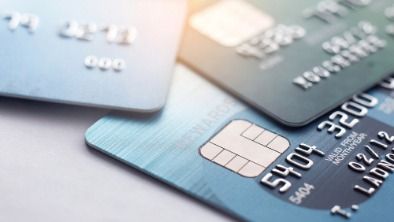
Transfer a Balance to Another Credit Card: You May Be a Terrorist
 If you deviate from your banking habits by initiating a transaction more than $5,000, your bank will help the government spy on you. The federal government wants to catch terrorists and money launderers, and banks are required to assist.
If you deviate from your banking habits by initiating a transaction more than $5,000, your bank will help the government spy on you. The federal government wants to catch terrorists and money launderers, and banks are required to assist.
Since 1996, banks have been required to file a Suspicious Activity Report (SAR) whenever they detect a suspicious transaction of $5,000 or more that could involve potential money laundering or terrorist financing… SARs provide the government with addresses, names, dates of birth, Social Security numbers or passport information, along with a brief description of the financial activities that raised red flags.
Chances are, most people reading this blog have been reported to the government at some point. What kinds of banking activity might result in a bank reporting your personal information to the feds?
- 0% APR balance transfers on credit cards. You receive these credit card offers and they’re a good way to leverage your personal finances. The credit card company supplies you with a check for deposit or completes a transfer to your bank for an amount close to your credit limit. This deposit, usually for more than $5,000, will raise a flag, and your information will be sent to the government.
- Transferring cash for large purchases. Buying a car or putting a down payment on a house with cash (rather than financing) is not uncommon, but most people don’t keep that kind of money in their checking accounts. If you fund your checking account from an outside money market account — a typical movement for someone making a large purchase — it’s likely you’ll set the bank’s federal reporting into motion. The banks can withhold the funds for some time, so if you’re going to make this kind of a transfer, you should do it well in advance of the date you plan on using the money.
- By the way, the banks are not allowed to inform their customers that an SAR form has been filed for their activity. I’m wondering if people generally feel there is no problem with banks sending their personal and transaction-related information to the government. Is it a concession people are willing to make to stop terrorism?
What if it doesn’t really stop terrorism? This process didn’t stop the events on Septemer 11, 2001 from happening. In fact, the terrorists’ financial transactions related to the event didn’t raise red flags according to the CNN article. The government won’t realease details about the effictiveness of SAR reporting, citing operational secrecy, but critics believe the program is entirely unaffectiveness and nothing more than excuse for the government to collect data and investigate anyone.


Article comments
Whenever I hear about things like this, it makes me want to initiate a transfer of $5,000.01 into and out of my bank account every day. I can just imagine the Treasury Department analyst scratching his head, trying to figure out what was going on. And it might just piss off the (powerful) banking lobby enough to get the rule recinded (or at least upped to $10 or $20k).
That’s right. Discover doesn’t present a problem but MBNA does.
I was reading your previous article with the link “Unless you use a Discover Card”.I think you probably meant MBNA not Discover because I haven’t had any problems with money transfer using Discover.
Can they be helpful? I don’t think it’s been determined that they have. (Or if it has been determined, the details would be classified.) They can however use the SARs to analyze known terrorists’ movements, but that’s after the fact.
Wooo … i just did a five figure balance transfer.
There are many places where I think that the government can be too intrusive. However the government print the money, insures the bank, and already uses the system to freeze funds. The SARs may not be directly effective but can be helpful in catching people who are trying to evade taxes.